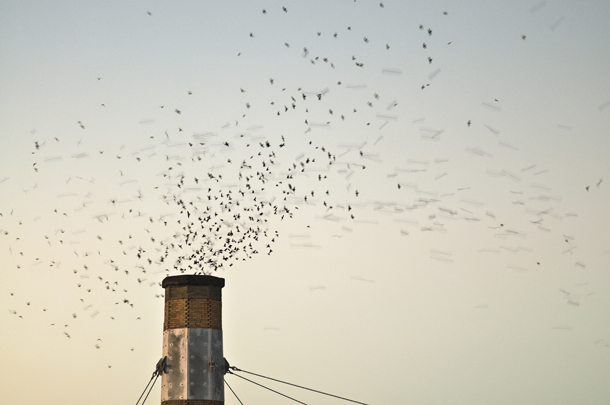Alumna’s thesis published in prestigious journal

Emma Dougherty
February 1, 2024 — Alumna Emma Dougherty, BS’23 (Flor), who is now in her first year of medical school at the Lake Erie College of Osteopathic Medicine, saw her senior honors thesis “Artificial light at night affects the timing of roosting by Chimney Swifts” published by Ibis, one of the world’s top ornithology journals.
Dougherty is the first author of the peer-reviewed research article. As a student at FDU, she majored in biology, and was mentored by Harald Parzer, assistant professor of biology, and Elise Morton, assistant professor of biology for her honors thesis.
The article highlights their important findings that Chimney Swifts, a highly threatened bird species that breeds in North America, is impacted by light pollution.
If you look up at dusk in spring, summer, or fall, you are very likely to see these little birds flying around like boomerangs. Although historically they used large hollow trees for breeding and roosting, after most of the old-growth hardwood forests were cut down by European settlers, they began to use chimneys almost exclusively. Signaled by sunset, large groups of this this species, sometimes comprised of thousands of individuals, exhibit impressive displays of coordinated entry into their roosting sites. Recruiting the help of citizen scientist volunteers around New Jersey and the New York Metropolitan area, Dougherty et al. observed the timing of entry of Chimney Swifts into chimneys distributed along a light pollution gradient. They found that light pollution was not only associated with delayed entry into roosting sites, but it interfered with a seasonal effects on roosting time.

A synopsis can be read at http://doi.org/10.1111/ibi.13296.
NOTE: The paper can be read in its entirety with an institutional login or by purchasing access.